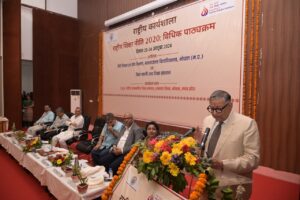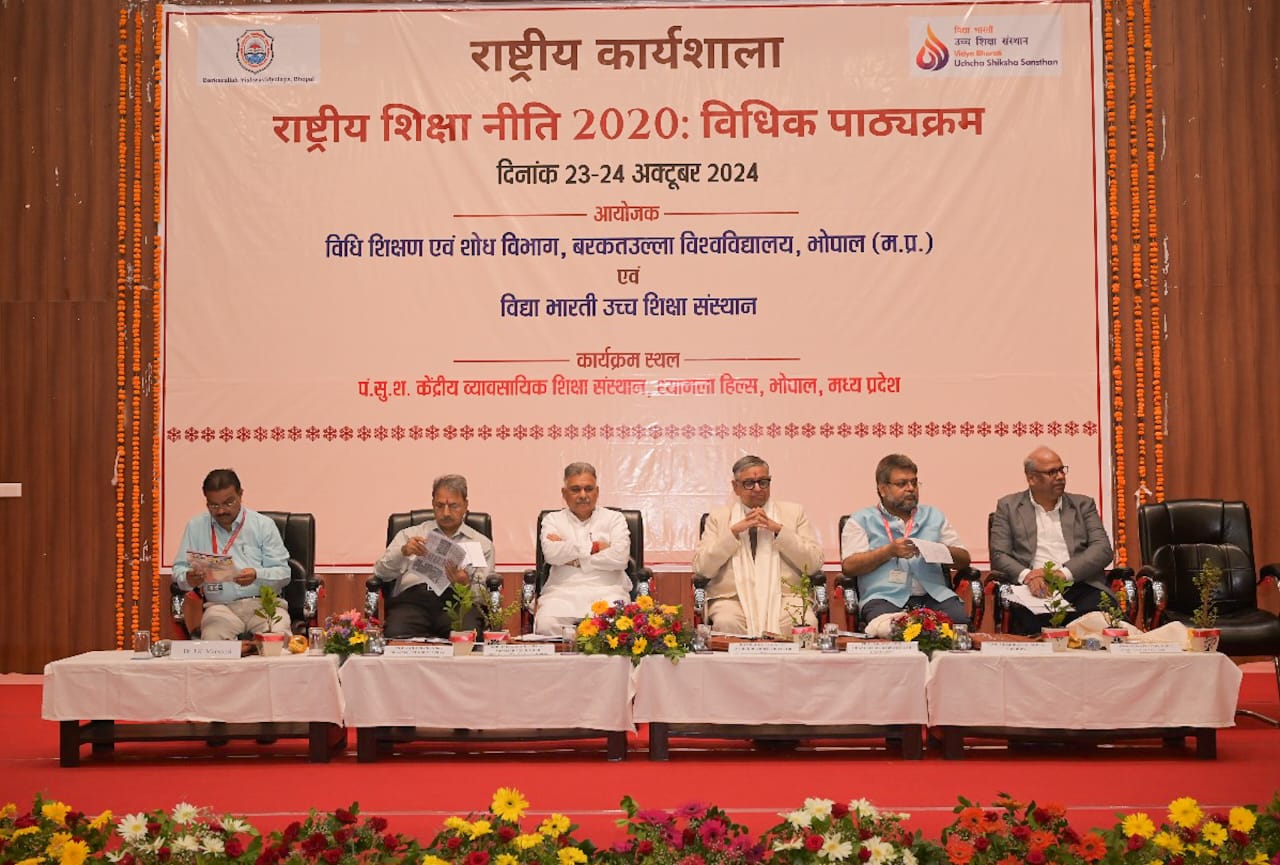CNN Central News & Network–ITDC India Epress/ITDC News Bhopal: A two-day workshop on the topic “NEP 2020: Legal Curriculum” was inaugurated at PSS Central Institute of Education in Bhopal, organized by Barkatullah University and Vidya Bharati Institute of Higher Education. During the event, discussions were held on implementing changes in legal education in line with the National Education Policy (NEP) 2020, with a focus on the Indian knowledge tradition. Supreme Court Retired Justice and Director of the National Judicial Academy, Aniruddha Bose, Higher Education Minister Inder Singh Parmar, and National President of Vidya Bharati Institute of Higher Education Kailash Chandra Sharma shared their views on legal education. The program was presided over by Vice-Chancellor SK Jain, with coordination by Vidya Bharati’s National Vice President Shashi Ranjan Akela and BU’s Law Department Head Dr. Mona Purohit.
Justice Bose emphasized the need to focus on the mother tongue and ICT in legal education. He identified four key career options for law students—becoming an advocate, judge, office lawyer serving in law firms, or law teacher. He noted that many institutions face a shortage of law teachers. Addressing social changes, he pointed out that people’s habit of taking loans is stripping them of ownership. He highlighted the challenges in legal education that need to be incorporated into the curriculum, such as teaching students about social security.

National President of Vidya Bharati Institute of Higher Education, Sharma, spoke about the paradigm shift in Indian education, from early childhood to higher studies. He explained that extensive work on the NEP began five to six years before its announcement in July 2020. He emphasized the continuous curriculum revision process undertaken by the UGC in line with NEP. Sharma discussed the importance of updating academic content regularly to ensure it remains relevant, noting that such processes had occurred before, with the UGC issuing a model curriculum around 1986.
He stressed the importance of having multidisciplinary institutions to ensure holistic development. He also emphasized that NEP aims to incorporate the Indian knowledge tradition into education. He asked whether India’s legal system has ever taught how courts should function or how the legal system should operate, mentioning that it is high time to focus on such topics in the curriculum.
Higher Education Minister Inder Singh Parmar noted that after considerable effort, the NEP 2020 was created, with a strong focus on the Indian knowledge tradition. He pointed out that while subjects have been taught, their direction lacked an Indian identity. Parmar stressed that India has made significant contributions to various fields, such as mathematics, and these should be included in the curriculum. He gave examples of the Indian number system and how vital it is to recognize and teach such contributions. Parmar emphasized that India will become a global problem-solver in the future and regain its status as a world leader.
Vice-Chancellor SK Jain said that the insights gained from the two-day workshop would be forwarded to the UGC and Bar Council of India to implement necessary changes in the legal curriculum according to the Indian knowledge tradition. He also mentioned that the outcomes would be shared with the Madhya Pradesh government for implementation in local educational institutions.
Registrar IK Mansuri expressed gratitude at the conclusion of the program.
#LegalEducation #NEP2020 #PSSInstitute #Workshop







